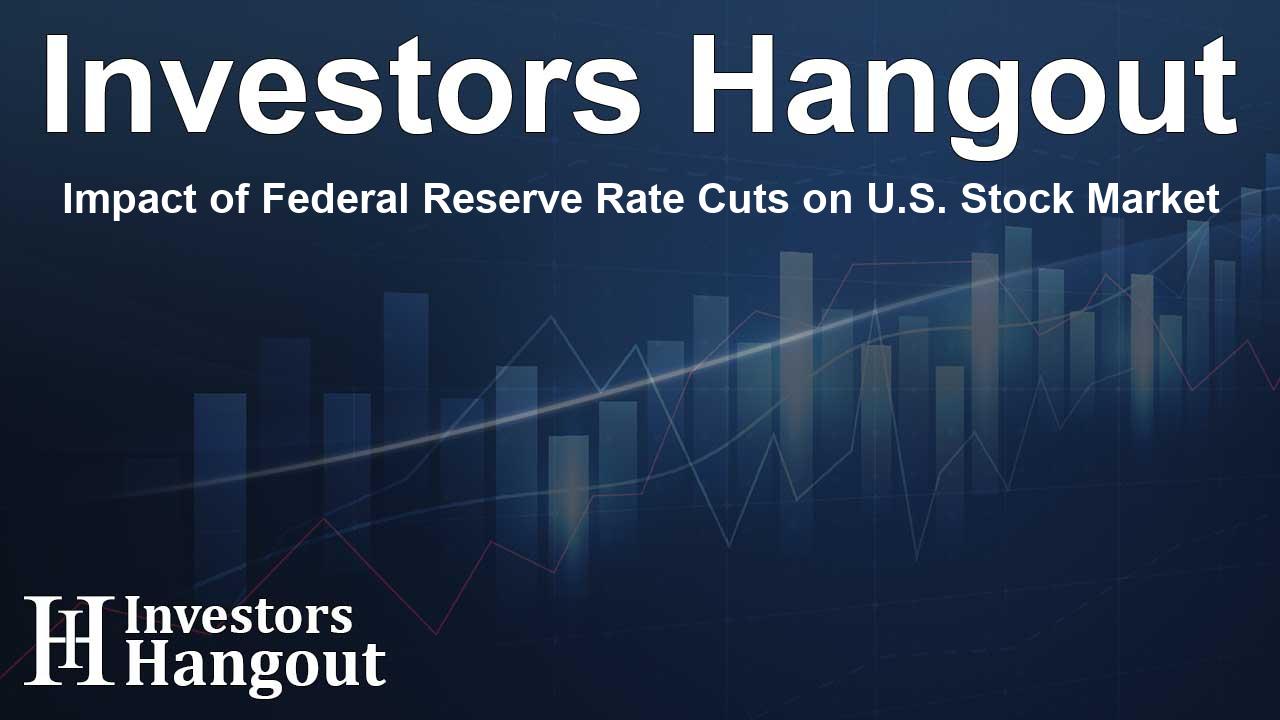Impact of Federal Reserve Rate Cuts on U.S. Stock Market

U.S. Stocks Surge Following Federal Reserve Rate Cuts
The U.S. stock market experienced a significant boost recently after the Federal Reserve announced a substantial 50 basis point cut to interest rates. This strategic move led to a record-setting close for the Dow Jones Industrial Average, which reached an impressive 42,025.19, marking a 1.3% gain. The S&P 500 also saw an exhilarating climb, with a closing record of 5,713.64, reflecting a 1.7% increase, while the Nasdaq composite jumped by 2.51%.
Market Reaction to Fed's Rate Cut
The uptick in stock prices follows the central bank's announcement of its first rate cut in four years. The Federal Reserve's proactive approach signals a strong belief in the resilience of the labor market and suggests potential for additional rate cuts later in the year. These developments are crucial, as they highlight the Fed's confidence in sustaining economic growth amidst fluctuating market conditions.
Insights from Financial Experts
Financial analysts have underscored the importance of these rate cuts. Jamie Cox, Managing Partner for Harris Financial Group, commented, "Markets generally respond favorably to rate cuts, particularly when they are substantial and occur in a stable economy." This sentiment reflects an overarching optimism surrounding the financial landscape as rate changes influence investor activities.
Sector Performance and Notable Stocks
Another positive aspect of this financial shift is the significant performance of technology stocks. Eight out of the S&P 500's 11 sector indexes recorded gains, with notable leaders including Apple (up 3.7%), Meta (up 3.9%), and Tesla, which skyrocketed by 7.4%. These movements indicate a robust appetite for tech investments, further bolstered by the favorable borrowing conditions brought about by lower interest rates.
Implications for Retirement Planning
For individuals investing in retirement savings, this surge is particularly encouraging. Historically, when the S&P 500 rises, it often correlates with an increase in personal retirement accounts. Quincy Krosby, chief global strategist for LPL Financial, noted, "This is excellent, good news for all of us saving for retirement. While fluctuations in the market are to be expected, the overall trend has historically been upward, reflecting a positive outlook for long-term investors."
What This Means for Your Investments
As investors grapple with the implications of the Fed's decisions, it is essential to understand how these changes may affect individual portfolios. The anticipated stability from lower rates could encourage risk-taking in the stock market, making it an opportune time for gradual investments in potential growth stocks.
Future Market Prospects
While the excitement surrounding the recent rate cuts can lead to short-term optimism, it is also critical for investors to remain vigilant about market volatility and potential economic shifts. Before making any major investment decisions, it's wise to engage in thorough research and consider seeking guidance from financial professionals.
Frequently Asked Questions
How do rate cuts affect stock prices?
Rate cuts lower borrowing costs and encourage spending, generally resulting in higher stock prices as companies find it cheaper to finance expansion.
Why do investors react positively to Fed rate cuts?
Investors often see rate cuts as an indication of supportive monetary policy that can stimulate economic growth, prompting positive stock performance.
What sectors perform best after a rate cut?
Historically, interest-sensitive sectors like technology, real estate, and consumer discretionary tend to perform well following rate cuts.
Should I adjust my retirement investments after a rate cut?
It can be beneficial to review your investment strategy and consider reallocating funds, especially into sectors that may benefit from lower rates.
What is the long-term outlook for the stock market?
While short-term fluctuations are common, the long-term outlook remains positive, especially with signs of economic resilience and consumer confidence.
About Investors Hangout
Investors Hangout is a leading online stock forum for financial discussion and learning, offering a wide range of free tools and resources. It draws in traders of all levels, who exchange market knowledge, investigate trading tactics, and keep an eye on industry developments in real time. Featuring financial articles, stock message boards, quotes, charts, company profiles, and live news updates. Through cooperative learning and a wealth of informational resources, it helps users from novices creating their first portfolios to experts honing their techniques. Join Investors Hangout today: https://investorshangout.com/
Disclaimer: The content of this article is solely for general informational purposes only; it does not represent legal, financial, or investment advice. Investors Hangout does not offer financial advice; the author is not a licensed financial advisor. Consult a qualified advisor before making any financial or investment decisions based on this article. The author's interpretation of publicly available data shapes the opinions presented here; as a result, they should not be taken as advice to purchase, sell, or hold any securities mentioned or any other investments. The author does not guarantee the accuracy, completeness, or timeliness of any material, providing it "as is." Information and market conditions may change; past performance is not indicative of future outcomes. If any of the material offered here is inaccurate, please contact us for corrections.